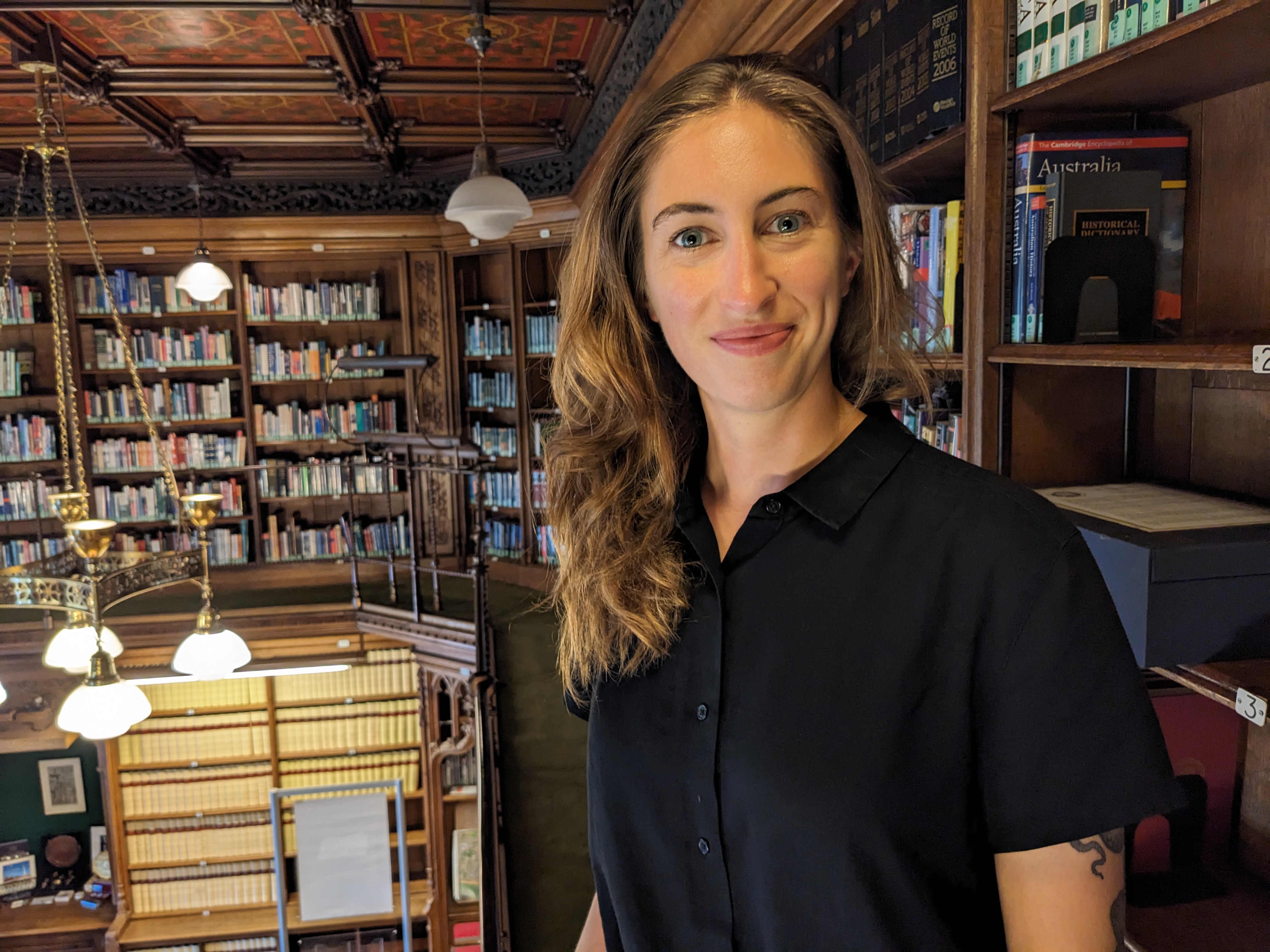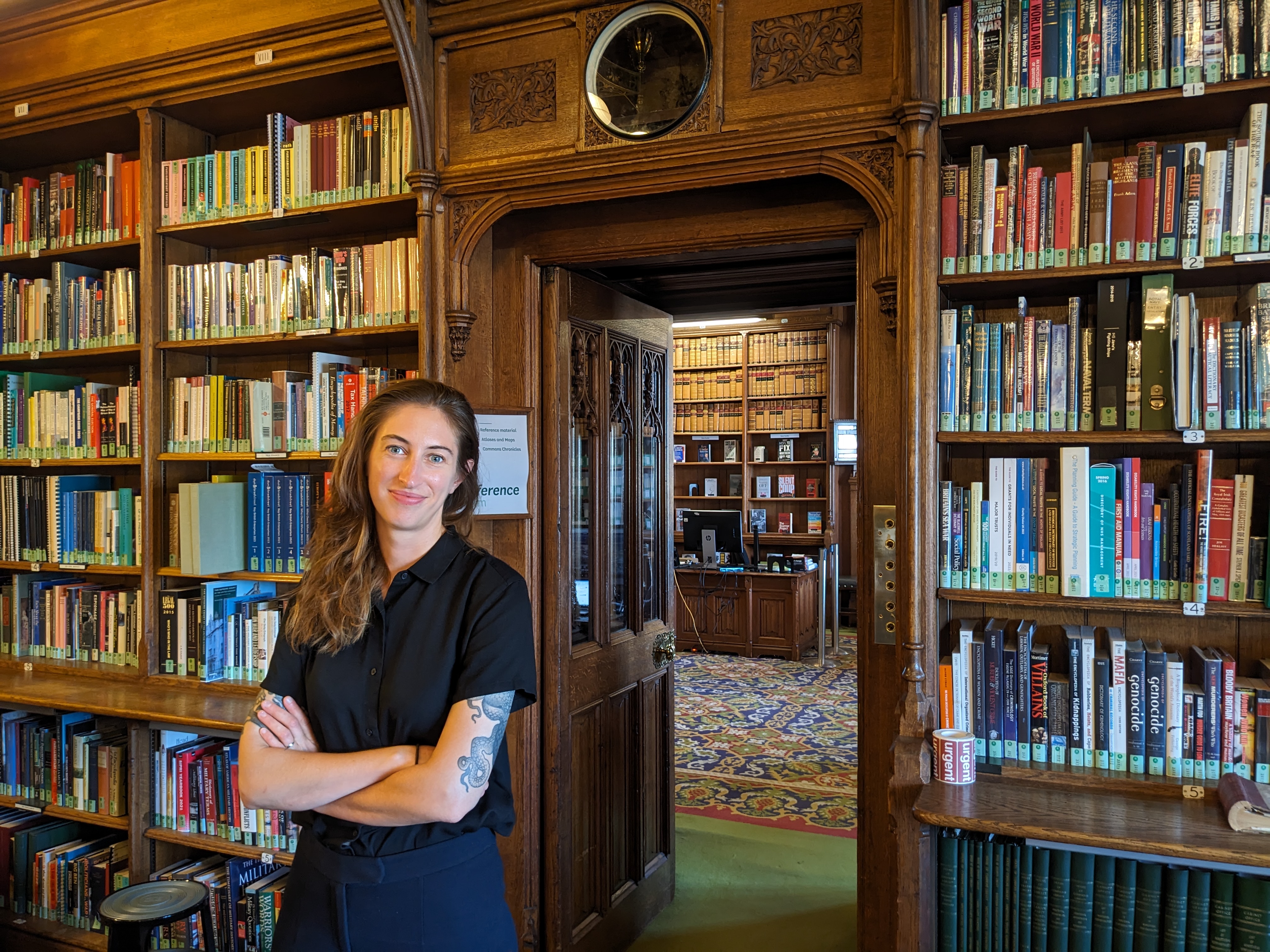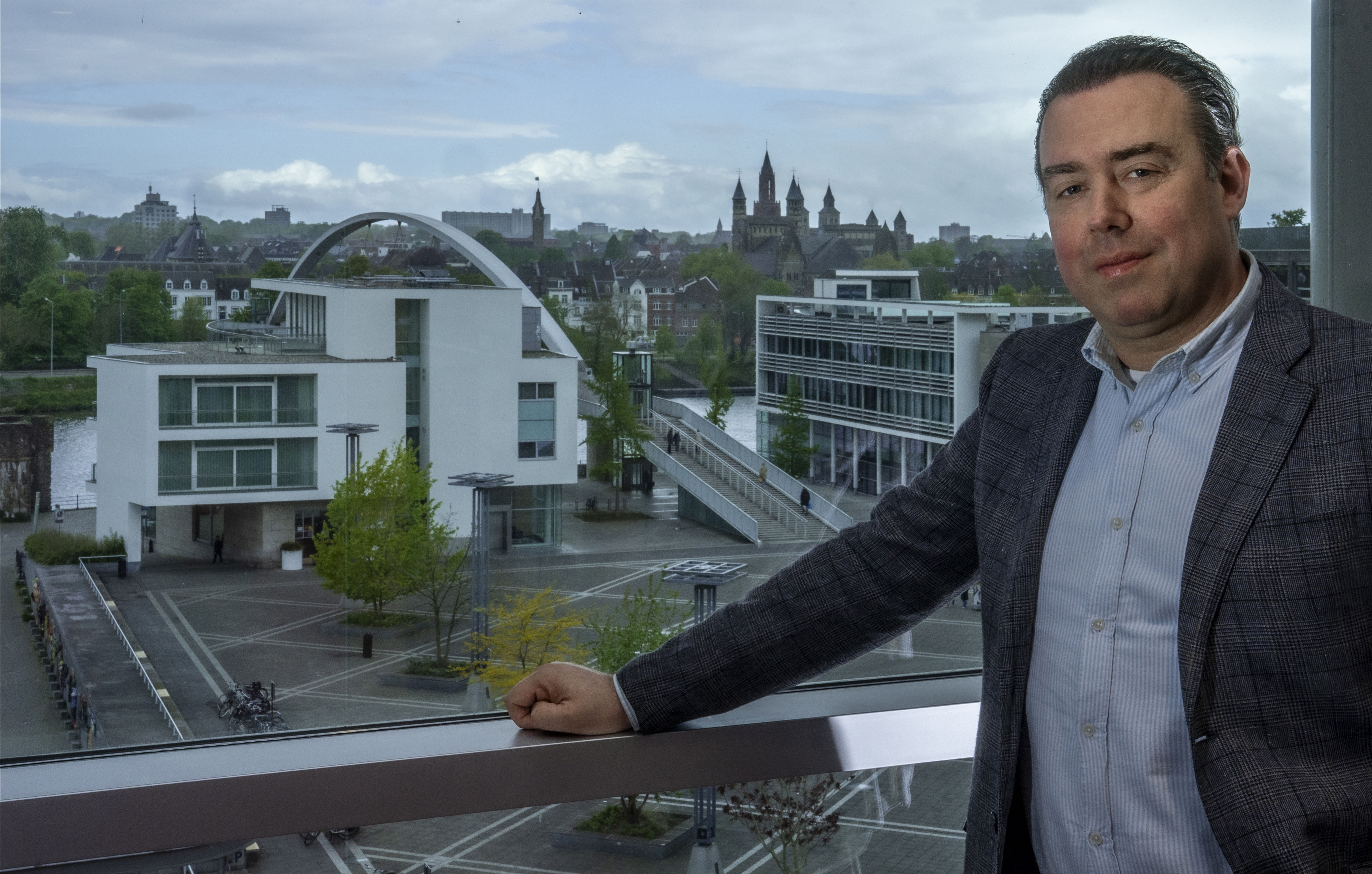Careful with numbers and stories
After graduating from Public Policy and Human Development at Maastricht University, she became a librarian at the House of Commons, the lower house of the UK parliament. Here, Georgina Sturge explains what numbers do and don’t mean to policymakers and the public.
Her decision to study at UM was itself based partly on numbers: tuition fees had just tripled in UK, so she embraced the challenge to go abroad. Sturge had studied English Literature at the University of Oxford and had always had an interest in politics. Working for charities had convinced her that policymaking could have a positive impact on society. The master’s in Public Policy and Human Development looked ideal.
“The programme focuses on the developing world and policy interventions, rather than just ‘Western’ politics. There were 120 people from all over the world, and we learnt a lot from each other. I absolutely loved it.” Sheepishly, she adds, “I hadn’t anticipated so much maths, but it’s an MSc, after all.”
Lifelong friends
Sturge developed a taste for econometrics and statistics, and stayed on as a researcher at the migration department. “I was cleaning data and doing statistical analyses day in, day out—which is sort of what led me to become a full-time statistician. If it hadn’t been for Maastricht, I’d be doing something completely different now.”
She looks back fondly on her time here. Despite being new to the Netherlands, she integrated relatively easily. “I turned up on the first day with a bike helmet, noticed that everyone was staring at me and never wore it again.” She made friends for life, and even met her future wife here. “It was a great experience. The people were open and friendly, and I loved the rich cultural life of Maastricht’s squats.”
Fancy commons
Sturge spent several years as a researcher at the Overseas Development Institute, a global-affairs think tank. But she soon grew disillusioned. “I started to wonder how much of a difference I was actually making. I wanted to be closer to the policymaking process.” Then she saw a job opening for a statistician at the 200-year-old House of Commons Library.
The Houses of Parliament in London make for a prestigious workplace. “Every time I walk in, I’m overwhelmed that I work in this amazing palace at the heart of British politics.” Pomp and circumstance abound: the ominously named Lady Usher of the Black Rod can be seen carrying around a silver-gilt ceremonial mace – otherwise how would one pass a law? “For the most part, it’s just a normal workplace where thousands of people do their jobs,” Sturge says—even if there are more tourists and armed guards than in most offices.
The House of Commons Library is a civil service that provides information to all Members of Parliament. It does not have to advocate for the Government. In fact, Sturge mostly fields requests from the MPs of whichever party happens to be in opposition, looking for data as they go about scrutinising the Government.

Georgina Sturge studied English Language and Literature at the University of Oxford and graduated in 2013 from the master’s in Public Policy and Human Development, a master's programme offered by Maastricht University in collaboration with UNU-MERIT. Since 2018, she has been senior library clerk at the House of Commons.

Good book, bad data
Last year, she published Bad data: How governments, politicians and the rest of us get misled by numbers, a book full of politically impartial case studies that illustrate the origins (and potentially misleading nature) of the data, numbers and statistics used by governments. “It’s basically a collection of examples about how policy and decision making can go wrong when they’re based on unreliable data.” Sturge deliberately avoids charts and tables, instead relying on anecdotes on topics ranging from crime and gambling to poverty. Communication is an undervalued part of her work, she says. “On a day-to-day basis, I’m doing not incredibly sophisticated statistical calculations. It‘s more about understanding and communicating the context, significance and uncertainty of these numbers to the very busy people who’ll be using them.”
To illustrate, Sturge explains how the UK has no population register, instead basing its migration statistics on passenger surveys at the border. “It worked well enough until the 2000s, when more migrants than expected arrived from the new EU countries. The estimates were off by hundreds of thousands. A census in 2011 revealed half a million more people than expected.”
This gave the impression that the government was not in control of migration and borders, which in turn generated momentum for Brexit and the idea of ‘taking back control.’ “There was a lack of confidence in numbers, statistics and ways of gathering data—a suspicion of the system as a whole.”
An unsexy topic
Politicians need to project more certainty and decisiveness than is justified by the data they cite. “Often they just don’t have the time and bandwidth for nuance. Answers like ‘we’re not sure’ and ‘it depends’ are not what they’re looking for.” The pandemic and Brexit have made the electorate wary of numbers. “We need to acknowledge the inherent limitations of what we can actually track. I hope it makes people sceptical of soundbite claims without making them cynical.”
In terms of numeracy, MPs and journalists are largely on par with the public— which is perfectly fine, Sturge says. “Everyone relies on the input of experts and institutions, so the collection of data should be well-resourced.” That being said: “It’s not a very sexy topic to advocate for.”
While Sturge hopes to do more writing in the future, she modestly describes it as a side hustle. She loves her work and credits UM for that as well. “It gave me not only the academic skills to pursue this amazing career path, but also confidence and resilience.”
Text: Florian Raith
Photography: Georgina Sturge
Also read
-
What does it mean to live and work in a city with an international university? When do you notice the university, and how does it benefit you? We asked Maastricht native Stefan Vrancken (50), who works as an associate notary. In his spare time, Vrancken is also an amateur historian and genealogist...
-
Dani Shanley and Joshi Hogenboom on synthetic data, the pains and gains of interdisciplinarity, and why AI likely won’t release us from having to study the world we live in.
-
Lee Bouwman, a vascular surgeon and endowed professor of Clinical Engineering, specialises in the implementation of groundbreaking healthcare technologies. The key to success, he says, lies in the collaboration between engineers and clinicians. This approach has already resulted in a range of...
- in Featured


